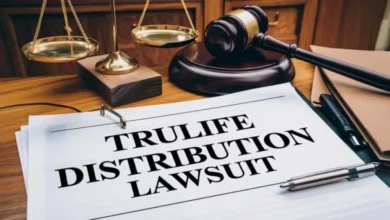The Meaning and Significance of HBCUs: A Comprehensive Guide

Introduction: Unpacking the Acronym HBCU
HBCU, or Historically Black Colleges and Universities, represents more than just educational institutions—it embodies a cultural and historical legacy. These schools were established primarily after the Civil War to provide African Americans with higher education opportunities during a time of systemic exclusion. Today, HBCUs stand as a testament to resilience, empowerment, and community. They play a crucial role in shaping leaders, fostering cultural pride, and addressing educational inequities.
Understanding the significance of HBCUs requires exploring their origins, contributions to society, and the challenges they face. In doing so, we recognize their role as vital pillars in American history and their continued importance in modern times.
The History and Legacy of HBCUs
Early Beginnings: Post-Civil War Era
HBCUs were born out of necessity during Reconstruction. Institutions like Cheyney University of Pennsylvania, founded in 1837, paved the way as the first school dedicated to educating African Americans. These early schools focused on training teachers, ministers, and tradespeople to uplift Black communities through education.
The Morrill Act of 1890, which required states to provide land-grant institutions for Black students if segregation was practiced, further fueled the establishment of HBCUs. This period marked a transformative era, as these schools became sanctuaries of learning and hope for those denied access to mainstream education.
Navigating Challenges
HBCUs faced immense hurdles, from limited funding to systemic racism. Despite these challenges, they persevered, becoming beacons of opportunity. Institutions like Tuskegee University, founded by Booker T. Washington, emphasized vocational training alongside academic studies, creating a blueprint for success that continues today.
Prominent HBCUs and Their Founders
Iconic HBCUs such as Howard University, Spelman College, and Morehouse College have shaped history. Howard University, often called the “Mecca,” produced trailblazers like Thurgood Marshall and Kamala Harris. These institutions remain steadfast in their mission to provide exceptional education and produce leaders across all fields.
The Role of HBCUs in Modern Society

Educational Contributions
HBCUs excel in fostering academic excellence. They have produced 40% of Black engineers, 50% of Black lawyers, and 80% of Black judges. Fields like medicine, law, and education have seen substantial contributions from HBCU graduates, who often serve underserved communities, bridging gaps in accessibility.
Cultural and Social Significance
HBCUs are more than places of learning; they are cultural hubs. They celebrate African American heritage, instilling pride and confidence in students. Homecomings, step shows, and marching bands are not just traditions but expressions of identity and resilience. These cultural experiences create lifelong bonds and a sense of belonging.
Economic Impact
HBCUs contribute billions to the economy annually, generating jobs and opportunities in their surrounding communities. They serve as engines of upward mobility, enabling students from low-income backgrounds to achieve financial independence and success.
Challenges Faced by HBCUs Today
Financial Struggles
Funding remains a critical challenge for HBCUs. Many rely heavily on federal assistance and donations, with endowments significantly smaller than predominantly white institutions (PWIs). Despite limited resources, HBCUs continue to deliver quality education, though sustainability remains a pressing concern.
Competition and Perceptions
HBCUs often face competition from PWIs, which now attract more diverse student bodies. Misconceptions about the quality of education at HBCUs further exacerbate challenges, requiring ongoing advocacy and public awareness efforts.
The Digital Divide
Adapting to modern technology is another obstacle. Many HBCUs lack the infrastructure to provide cutting-edge resources, putting students at a disadvantage in an increasingly digital world. However, initiatives like partnerships with tech companies are beginning to address this gap.
The Future of HBCUs
Innovations in Education
HBCUs are adapting by incorporating STEM programs and technology-driven curricula. Collaborations with corporations, like the Google-HBCU initiative, are opening doors to new opportunities for students, ensuring they remain competitive in evolving industries.
Advocacy and Community Engagement
Efforts to raise awareness about HBCUs’ value are gaining traction. Campaigns highlighting their legacy, coupled with strong alumni networks, are boosting enrollment and ensuring these institutions remain relevant.
Sustainability and Growth
HBCUs are leveraging philanthropy and strategic partnerships to secure their future. Alumni donations and federal grants are vital in supporting infrastructure improvements, scholarship programs, and faculty development. The resilience of these institutions lies in their ability to adapt while staying true to their mission.
Conclusion: The Enduring Importance of HBCUs
HBCUs are more than historic institutions; they are transformative forces for education, culture, and society. Their legacy is woven into the fabric of America, showcasing the power of perseverance and the importance of community. As we look to the future, supporting HBCUs ensures they continue to empower generations, uphold cultural heritage, and drive progress.
FAQs About HBCUs
What does HBCU stand for?
HBCU stands for Historically Black Colleges and Universities, which were established to provide higher education opportunities for African Americans.
How many HBCUs exist in the United States?
There are currently 107 recognized HBCUs across the U.S.
Are HBCUs only for African American students?
No, HBCUs welcome students of all races and backgrounds, emphasizing diversity and inclusion.
Why are HBCUs still relevant today?
HBCUs continue to address educational disparities, produce influential leaders, and preserve African American culture and heritage.
What challenges do HBCUs face?
Challenges include financial struggles, limited resources, competition from PWIs, and the digital divide.
What notable figures graduated from HBCUs?
Prominent alumni include Dr. Martin Luther King Jr. (Morehouse College), Oprah Winfrey (Tennessee State University), and Kamala Harris (Howard University).
You May Also Read:https://vlpside.com/breakout-edu/



